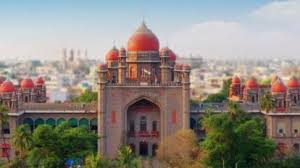Telangana HC gives govt one week to decide on termination of minor rape victim’s 21-week pregnancy

The Telangana High Court has taken swift action to protect the rights of a 17-year-old rape survivor. The court directed the state government and Gandhi Hospital in Hyderabad to set up a medical board within one week. The board must decide whether the girl, who is in her 21st week of pregnancy, can legally undergo an abortion.
The girl, a survivor of sex trafficking, made it clear that she wants to end the pregnancy. She is not mentally or physically prepared to continue with it. Her caregivers also fear that continuing the pregnancy could worsen her trauma.
Legal Provisions Under the MTP Act
The Medical Termination of Pregnancy (MTP) Act, 1971, amended in 2021, allows abortions up to 24 weeks for special categories. These include rape survivors, minors, victims of incest, and women with disabilities.
For pregnancies over 20 weeks, the law requires a medical board to assess health risks. The board must check if the pregnancy is a danger to the girl’s physical or mental health or if the fetus has severe abnormalities.
In this case, Justice K. Sarath emphasized urgency. He said decisions like this must be made with compassion and speed.
NGO Prajwala Leads the Legal Effort
The NGO Prajwala filed the case. The group rescues and helps victims of sexual violence and trafficking. In court, they said the minor is under extreme stress. She also faces serious mental health risks if forced to continue the pregnancy.
Prajwala argued that the law protects the girl’s right to choose. They stressed the need for fast action to prevent further harm.
Medical Boards and Delays in Care
Medical boards are meant to provide expert opinions. They include a gynecologist, a pediatrician, and another senior medical officer. These boards decide if abortion is safe and legal in cases beyond 20 weeks.
But sometimes, the process causes harmful delays. In cases involving minors or rape survivors, even short delays can cause more trauma. Several courts across India have allowed abortions after 24 weeks in such cases. They recognized the special needs of rape survivors and children.
The Mental Health Toll of Forced Pregnancy
Experts say forcing a rape survivor to carry a pregnancy can be deeply harmful. Survivors often suffer from PTSD, depression, shame, and isolation. For a minor, the impact is even more severe.
Medical and legal experts agree that the girl must have the right to choose. Her physical and emotional health must come first. The court’s order reflects that approach.
What Happens Next?
The High Court gave the government and hospital one week to act. Here’s what’s expected:
- A medical board will be formed quickly.
- The board will assess the girl’s health and mental state.
- Their report will be sent to the court.
- Based on the findings, the court will decide whether the abortion can proceed.
Could This Set a New Legal Standard?
This case could shape future legal decisions. Courts in Mumbai, Chennai, and Odisha have already allowed late-term abortions for rape survivors, even beyond 24 weeks. These rulings show growing support for trauma-informed justice.
The Telangana case may set a benchmark. It highlights the need for fast, sensitive, and survivor-friendly legal processes.
Final Thoughts
The Telangana High Court has shown compassion and urgency. Its action may help protect a young girl from further trauma. It also raises bigger questions about how India treats survivors of sexual violence.
The girl’s case is still under review. But one thing is clear: her health, safety, and dignity must come first.






